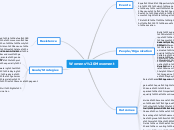arabera Ryan Collins 6 years ago
257
Womens Move,ent
The women's movement, particularly spearheaded by organizations like the National Organization for Women (NOW), focused on achieving gender equality through various goals and strategies.

arabera Ryan Collins 6 years ago
257

Honelako gehiago